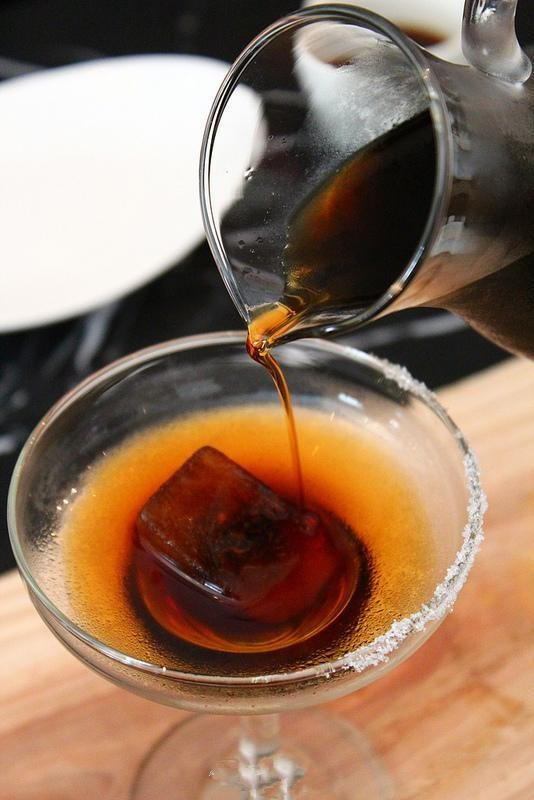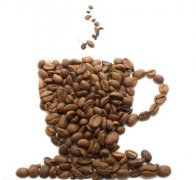Introduction of coffee producing countries in Tanzania and Africa

Tanzania Coffee Coffee growing area: Africa
Type of coffee: medium concentration
Coffee description: refreshing acidity and medium mellowness complement blackcurrant and sweet orange flavors
Processing method: washing method
Taste match: blackcurrant, orange and lemon
Similar to coffee: Kenya Coffee
Tanzanian coffee, produced in the rich soil of the East African Rift Valley, is an outstanding representative of high-quality coffee from the region. Its refreshing acidity and medium mellowness complement sweet citrus and floral aromas. This coffee tastes great whether it's a hot drink or iced coffee. With oranges or berries, it can show its bright flavor.
Tanzanian coffee is a kind of Central / East African water-washed (wet-treated) coffee beans, which is characterized by bright acidity and wild flavor. Kenyan coffee is undoubtedly the best coffee of this kind. Garden beans are usually singled out and sold at a higher price, but their performance in the cup is often unsatisfactory, making people feel that it is not worth it. Tanzania green beans, as a new type of coffee beans, sell very well in the United States, so many roasters have accepted this reality. Indeed, Tanzanian coffee has great potential, but it often misses the expression period of the best flavor because of the long transportation process. Because the coffee industry in Tanzania does not have the same infrastructure as Kenya, it is very possible that coffee beans have become old beans in containers on the way to the port. I can often brew the perfect flavor of this kind of coffee, but the aged beans have completely lost their flavor for a few years. So please keep in mind that if there is a newly arrived Tanzanian coffee on the supply list, it will make me very excited, because this batch of coffee must be very good. Mt in northern Tanzania. Good Tanzanian coffee is produced in the Kilimanjaro,Moshi and Mbeya areas, as well as in the Sogea area near the Ruvuma River and the Ruvuma basin in the south.
The famous coffee brands in Tanzania are Africafe, Tanica Cafe and Kilimanjaro. Tanzanian coffee has long been loved by Europeans and has joined the ranks of famous products. Europeans give Tanzanian coffee the nickname "coffee gentleman". Africafe coffee, one of the top representatives of AA coffee beans in Tanzania, is bred by volcanic ash and made by nature. it has a unique cocoa aroma and a strong glycolic degree.
Tanzanian coffee
Tanzanian coffee has also been developed in the hands of German and British colonists and has long been loved by Europeans and squeezed into the ranks of famous products. The most favorable factors that make Tanzanian coffee famous are Hemingway and his novels.
Hemingway has been integrated with Tanzania and Mount Kilimanjaro since he embarked on his career as a writer in France. When Hemingway became famous, Tanzanian coffee became famous.
Europeans gave Tanzanian coffee the nickname "coffee gentleman", making it the pinnacle, and the "king of coffee" Blue Mountain, "coffee lady" Mocha and known as the "coffee swordsman".
Mount Kilimanjaro in Tanzania ("Kilima" means mountain, "Zaro" means radiant) is 5895 meters above sea level, connected to Mount Mt.Meru, and is the main coffee production base in Tanzania. Moshi and Alesha, located on the southern slope of Mount Meilu, also produce a large number of high-quality coffee beans. Eighty-five percent of Tanzanian coffee is grown on small farms.
When coffee produced in these regions is sold on the international market, the trademark is usually "Pride of Kilimanjaro (Pride of Kilimanjaro)", "Peaks of Kilimanjaro (Top of Kilimanjaro)", "Tanzania Moses" or "Tanzania Alesha".
After Jesuit introduced bean fruit to Europe in 1893, "Tanzania bean fruit" began to attract attention from all walks of life. For some reason, the yield of "bean fruit" in Tanzania is higher than that of ordinary coffee. In the international market, there are more products with the words "Tanzania beans and fruits" than those with the words "Kilimanjaro".
Generally speaking, Tanzanian coffee has a "crisp" characteristic, exudes delicate aroma, and contains wine and fruit aromas, endless flavor. Locally, it is similar to Kenyan coffee, but overall, it is closer to Sumatra Lloyd's coffee. After drinking Tanzanian coffee, you will feel a soft earthy smell around your mouth. Coffee gourmets often use words such as "wild" or "wild" to describe it. It can be said that pure Tanzanian coffee is "the most African coffee".
Tanzania promotes the people to drink coffee.
Tanzania is a famous coffee producer in the world. Due to the current low domestic consumption in Tanzania, the government is calling on people to drink at least twice as much coffee every day for the next five years to boost domestic sales.
Premers Kimayo, director of the quality and Promotion Department of the Tanzania Coffee Council, the national agency, told Reuters on the 14th: "because of the colonial history of Tanzania, today's social elites are learning from the British to drink tea." But I would like to appeal to all Tanzanians to drink more of our own coffee. "
The Tanzania Coffee Committee believes that at this stage, the proportion of 7% of coffee sold in Tanzania is too low and should be increased to 15% by 2014, so as to reduce the impact of international market demand on the Tanzanian coffee market.
Kimayo believes that Tanzanians should drink twice as much coffee every day for the next five years.
Tanzania plans to add six new coffee producing areas
Source: website of Ministry of Commerce of China
The Tanzania Coffee Council (TCB) has identified six new areas as coffee growing areas, bringing the total number of coffee growing areas in the country to 13 to meet the target of 100000 tons of coffee production in 2020. Adolf, chairman of TCB. Kunburu said that the staff of the council stationed in various producing areas will provide services to farmers and guide them to plant new varieties developed by the Tanzania Coffee Institute.
Tanzania currently produces 50,000 tons of coffee a year, making it the fourth largest coffee producer in Africa. Due to the sharp rise in international coffee prices last year, Tanzania is eager to increase its coffee production through various measures. According to data provided by the International Coffee Organization (ICO), the ICO coffee price composite index [1985.54 0.27%] reached its highest level of 184.26 cents per pound since 1994 in December last year, and world coffee exports reached 7.6 million bales in November last year, an increase of 900000 bales over the same period in 2009.
Important Notice :
前街咖啡 FrontStreet Coffee has moved to new addredd:
FrontStreet Coffee Address: 315,Donghua East Road,GuangZhou
Tel:020 38364473
- Prev

The characteristics of Rwandan coffee
Since the 1920s, Arabica coffee grown in Rwanda has been famous for its unique fruit sweetness and rich grass aroma. In recent years, the Rwandan government has taken positive measures to vigorously promote coffee production, set up coffee production cooperatives in various places, and give technical guidance and financial support to farmers, so that coffee production has made considerable progress. From Rwanda.
- Next

Brazilian coffee bean boutique coffee bean common sense
Brazilian coffee generally refers to coffee produced in Brazil. There is a wide variety of Brazilian coffee, the vast majority of which are unwashed and sun-dried, classified according to the name of the state of origin and the port of transport. Brazil has 21 states and 17 states produce coffee, but four of them produce the largest, accounting for 98% of the country's total output. Brazilian coffee has a low sour taste, which goes well with coffee.
Related
- Detailed explanation of Jadeite planting Land in Panamanian Jadeite Manor introduction to the grading system of Jadeite competitive bidding, Red bid, Green bid and Rose Summer
- Story of Coffee planting in Brenka region of Costa Rica Stonehenge Manor anaerobic heavy honey treatment of flavor mouth
- What's on the barrel of Blue Mountain Coffee beans?
- Can American coffee also pull flowers? How to use hot American style to pull out a good-looking pattern?
- Can you make a cold extract with coffee beans? What is the right proportion for cold-extracted coffee formula?
- Indonesian PWN Gold Mandrine Coffee Origin Features Flavor How to Chong? Mandolin coffee is American.
- A brief introduction to the flavor characteristics of Brazilian yellow bourbon coffee beans
- What is the effect of different water quality on the flavor of cold-extracted coffee? What kind of water is best for brewing coffee?
- Why do you think of Rose Summer whenever you mention Panamanian coffee?
- Introduction to the characteristics of authentic blue mountain coffee bean producing areas? What is the CIB Coffee Authority in Jamaica?

